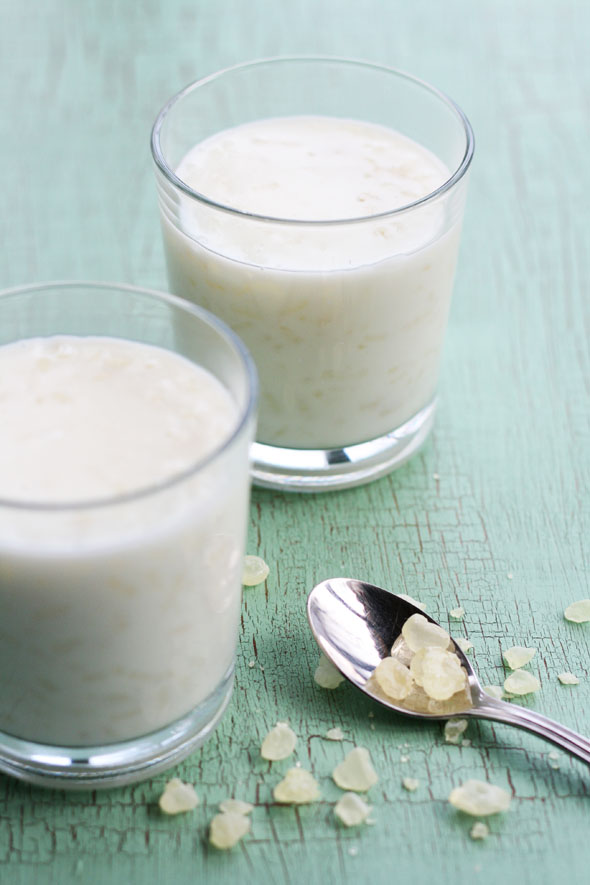Wild summer greens: Quick skordalia with purslane & horta style warrigal greens
My love for wild greens has not abated this summer. My first love, the sweet green summer vlita (βλήτα), had to vie for attention as my affection for crispy lemony purslane has grown. We have enjoyed purslane slowly braised along with zucchini and vlita in a spicy tomato sauce, as well as a variety of salads - from simple tomato and olive - to a really fresh and punchy traditional Lebanese fattoush, the recipe courtesy of my gorgeous friend, Mama Z. I hope to share the recipe for fattoush with you soon, before the purslane of summer disappears. However, this week I needed a starchy hit - but I had a basket absolutely brimming with freshly picked purslane. The solution - a quick skordalia with purslane (σκορδαλιά με αντράκλα).
This recipe for skordalia is 'quick' because I cheated and used my food processor instead of using the more traditional mortar and pestle. I was a little worried, as I hate putting potatoes near a food processor for fear of a heavy, gluggy sludge - a mortar and pestle is guaranteed to always give you a lighter, fluffier skordalia. However, I need not have worried, as the food processor version worked well - it had a big hit of good Greek olive oil, richly green unfiltered of course - and lots of lemon, making more of a zingy, saucey skordalia compared to a more 'mashed' style.
Skordalia with purslane (σκορδαλιά με αντράκλα)
7-8 garlic cloves (or to taste)
450g or 1 pound of potatoes
2 cups of purslane, chopped
1 cup Greek, first harvest unfiltered olive oil
Lemon juice (or Greek wine vinegar to taste)
Salt
Method:
1. Peel the potatoes cut into even sized pieces. Boil until tender.
2. Meanwhile, add the garlic cloves and a pinch of sea salt to a food processor and process until it is a paste.
3. Add ½ of the olive oil in the food processor and continue mixing.
4. Then add the potatoes and pulse, while gradually dribbling in the rest of the olive oil, alternatively with dribbles of lemon juice, until the oil and lemon is absorbed. Taste regularly to make sure you have the right balance.
5. Remove from the processor and fold through the chopped purslane. Drizzle over a little oil and some more pieces of purslane to garnish.
Just when I thought I had settled on my two very favourite wild summer greens - vlita and purslane - a healthy crop of warrigal greens (sometimes known as Botany Bay or native spinach) came along. They are quite 'spinach' like in taste but are a little more robust in texture and have the tiniest metallic or salty sort of end note. They also grow.....,well,... like weeds. They self-seed and require no love or attention to grow in abundance in the garden. I used my first harvest of warrigal greens in a simple horta style warm salad and I can't wait to use them with lots of wild fennel and feta in a traditional Greek pita.
Horta style warrigal greens
Harvesting
To harvest the warrigal greens, cut off young shoots by hand (as opposed to cutting the whole plant with a knife from the root or base).
Cleaning
Throw away an old or yellowing leaves. Remove the tender shoots from any thick stems. Discard the tough, thick stems. Wash the warrigal greens by placing in a large bowl of water and keep changing the water until there is no dirt left floating in the water.
Cooking Boiling
Add the cleaned warrigal greens to a saucepan. Add a small amount of water to the bottom of the pan ( there is no need to fully cover the warrigal greens with water). Cover the pan with a lid and bring to the boil. Cook for around 10 minutes. You want to retain its bright green colour. Remove the warrigal greens from the pan and place in a serving bowl. Drizzle very generously with olive oil and lemon juice.
A bonus tonic
Don't throw away the water from the cooking. Like all wild greens and artichokes, my mother in law swears by the juice as a powerful health tonic. Simply drain into a glass or jug, add extra lemon juice, allow to chill and drink. It has a very cooling effect.






Comments
Post a Comment